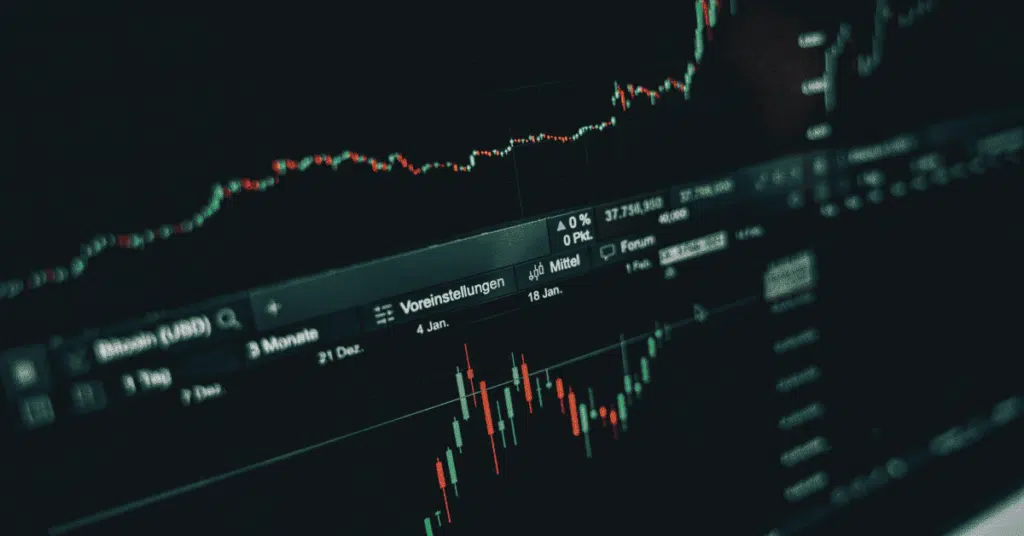Our Location
304 North Cardinal St.
Dorchester Center, MA 02124

As India’s manufacturing sector experiences a historic boom in 2025, driven by the government’s Production Linked Incentive (PLI) schemes, rising exports, and global companies shifting supply chains away from China, manufacturing mutual funds have emerged as powerful long-term investment vehicles.
These funds focus on high-growth industries such as electronics, automobiles, defence, and capital goods—sectors positioned at the heart of India’s economic transformation. With multiple active and passive manufacturing mutual funds options launched recently by top AMCs like HDFC, Axis, and ICICI Prudential, investors now have the opportunity to tap into India’s industrial resurgence through professionally managed portfolios. For those seeking long-term wealth creation, these thematic funds offer a compelling route aligned with the nation’s growth story.
India’s manufacturing sector is experiencing a significant surge in 2025, propelled by robust policy support, increased foreign investments, and a strategic shift in global supply chains. The country’s Purchasing Managers’ Index (PMI) for manufacturing stood at 58.2 in April 2025, indicating sustained expansion in the sector . This growth is further underscored by a 13.6% rise in gross Foreign Direct Investment (FDI), reaching $81 billion in FY25, marking the fastest expansion since FY20 . Notably, the electronics sector has seen substantial investments, with Apple and its supplier Foxconn investing $1.5 billion in a new display module assembly facility near Chennai, Tamil Nadu, expected to create around 14,000 jobs.
Government initiatives like the Production Linked Incentive (PLI) scheme have been instrumental in this boom. The PLI schemes have attracted over $8.15 billion (₹67,690 crore) in investments, significantly boosting production in sectors such as automotive and electronics . Additionally, the manufacturing sector’s contribution to India’s GDP is projected to reach $1 trillion by 2025-26, highlighting its pivotal role in the country’s economic growth . These developments position India as a burgeoning global manufacturing hub, with the sector’s share in employment also seeing a notable increase.
Announced in the 2025 Union Budget, the National Manufacturing Mission aims to bolster the ‘Make in India’ initiative by supporting clean tech manufacturing and attracting investments across various sectors. The mission focuses on enhancing domestic production and self-reliance.
To reduce dependency on imports and strengthen domestic capabilities, the India Semiconductor Mission has been launched, focusing on attracting investments in semiconductor manufacturing and related industries. This initiative is crucial for sectors like electronics and automotive, which rely heavily on semiconductors.
Launched in September 2023, the PM Vishwakarma Scheme provides end-to-end support to artisans and craftspeople engaged in traditional industries. The scheme aims to integrate these workers into the formal economy, enhancing their skills and providing financial assistance.
CGTMSE offers credit guarantees to micro and small enterprises, facilitating easier access to loans without the need for collateral. In 2025, the scheme has approved over 1 crore loan guarantees, cumulatively covering ₹5.2 lakh crore in credit, significantly aiding MSME growth.
The MITRA scheme focuses on developing integrated textile parks to enhance the competitiveness of the textile industry. By consolidating the entire textile value chain in one location, the scheme aims to reduce logistics costs and improve economies of scale.
The Skill India initiative continues to play a vital role in providing vocational training to the workforce, ensuring a steady supply of skilled labor for various manufacturing sectors. The mission aims to train over 30 crore people in different skills by 2022, with ongoing efforts to expand this reach.

Manufacturing mutual funds are sectoral/thematic equity funds that invest in companies contributing to India’s industrial and manufacturing growth.
| Manufacturing Mutual Funds Name | Tracking Index | Launch Year | AUM (₹ Cr) | NAV (₹) |
|---|---|---|---|---|
| HDFC Manufacturing Fund | Nifty India Manufacturing Index | 2024 | ₹11,700+ | 10.5 |
| Axis India Manufacturing Fund | Nifty India Manufacturing TRI | 2024 | TBD | TBD |
| Aditya Birla SL Manufacturing Equity Fund | BSE India Manufacturing TRI | 2024 | TBD | TBD |
| ICICI Prudential Manufacturing Mutual Funds | Nifty India Manufacturing TRI | 2024 | TBD | TBD |
| Kotak Manufacturing mutual Funds | Nifty India Manufacturing TRI | 2024 | TBD | TBD |
| LIC MF Manufacturing Fund | Nifty India Manufacturing TRI | 2024 | TBD | TBD |
| Motilal Oswal Manufacturing Fund | Internal benchmark | 2024 | TBD | TBD |
| Canara Robeco Manufacturing Fund | Nifty India Manufacturing TRI | 2024 | TBD | TBD |
Note: HDFC’s fund is currently the most popular with the highest AUM. Other funds are newer and yet to accumulate large assets.
These funds offer exposure to the manufacturing theme via index-tracking strategies. Lower expense ratios and automatic diversification make them appealing.
| Fund Name | Type | Tracking Index |
|---|---|---|
| Navi Nifty India Manufacturing Index Fund | Index Fund | Nifty India Manufacturing |
| UTI Nifty India Manufacturing Index Fund | Index Fund | Nifty India Manufacturing |
| Tata Nifty500 Multicap India Manufacturing Index Fund | Index Fund | Nifty500 Multicap 50:30:20 |
| Mirae Asset Nifty India Manufacturing ETF | ETF | Nifty India Manufacturing |
Navi was the first to launch a passive fund based on this theme.
Manufacturing is a cyclical sector. Global demand, commodity prices, and political events can impact returns.
Experts recommend a minimum of 5 years for thematic funds to potentially deliver superior returns.
Don’t exceed 10–15% of your portfolio in sectoral funds. Balance with diversified equity funds.
In passive funds, lower expense ratio and minimal tracking error are critical.
Financial advisors suggest:
“Best thematic mutual funds 2025 India” should be evaluated like a satellite investment, not core holding.
India is benefitting from global shifts:
By 2030, India may contribute over 5% to global manufacturing output, up from under 3% in 2022.
Manufacturing mutual funds in India are no longer just a niche product—they’re a smart play on India’s decade-long growth trajectory.

Always consult a financial advisor before investing.
India’s manufacturing revolution is not just a policy shift—it’s a structural transformation backed by visionary initiatives like Make in India, PLI schemes, and robust industrial infrastructure. As the country moves toward becoming the world’s third-largest economy by 2031, the manufacturing sector is set to play a critical role in driving GDP growth, job creation, and exports. For investors looking to align their portfolio with this long-term megatrend, manufacturing mutual funds present a strategic opportunity.
Whether through actively managed funds or passive index-based options, these manufacturing mutual funds, thematic funds offer targeted exposure to sectors poised for multi-decade expansion. However, as with all sectoral investments, a long-term horizon and diversification are key. Always consult a financial advisor to ensure these manufacturing mutual funds match your risk appetite and investment goals before committing capital.
Manufacturing mutual funds are thematic equity funds that invest primarily in companies from the manufacturing sector—such as capital goods, industrial machinery, auto components, chemicals, and related infrastructure. These funds aim to benefit from India’s growing focus on domestic production, driven by initiatives like “Make in India” and the PLI (Production Linked Incentive) schemes.
Yes, manufacturing mutual funds are ideal for long-term investors who believe in the growth potential of India’s industrial and manufacturing ecosystem. Since these funds are sector-specific, they may be more volatile in the short term, but over 5–10 years, they can offer strong capital appreciation if the sector performs well.
The major risks include sector concentration risk, economic slowdown, policy changes, and global trade uncertainties. If the manufacturing sector underperforms or faces macroeconomic headwinds, the fund’s returns can be adversely affected. Diversifying your overall portfolio can help manage these risks.
Manufacturing mutual funds are treated like any other equity mutual funds.
Short-term capital gains (STCG) on units held for less than 12 months are taxed at 15%.
Long-term capital gains (LTCG) on units held for more than 12 months are tax-free up to ₹1 lakh per year, and gains beyond that are taxed at 10% without indexation.
As of 2025, some of the top-performing manufacturing mutual funds include:
ICICI Prudential Manufacturing Fund
Tata Manufacturing Fund
SBI Infrastructure Fund (with heavy manufacturing exposure)
Nippon India Power & Infra Fund
Quant Infrastructure Fund
Performance varies, so it’s important to review past returns, fund manager track record, and sectoral allocation before investing.

Welcome! I am a dedicated entrepreneur running an industrial affiliate product website, helping businesses and professionals find the best tools, equipment, and resources for their needs. With a passion for industrial products and a keen eye for quality, I curate and recommend top-performing items that enhance efficiency and reliability.
Through my platform, I aim to simplify the buying process by providing valuable insights, expert reviews, and trusted affiliate links to high-quality industrial products. Whether you’re looking for the latest machinery, tools, or safety gear, I strive to connect you with the best solutions available.
Thank you for visiting, and I look forward to helping you make informed purchasing decisions!